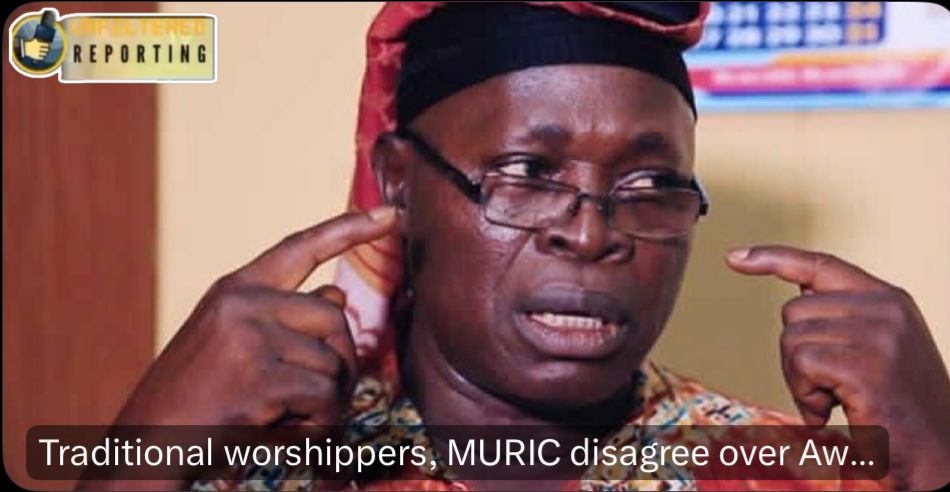The recent burial of the Awujale and paramount ruler of Ijebuland, Oba Sikiru Kayode Adetona, has sparked a major disagreement between traditional worshippers and the Muslim Rights Concern (MURIC), following the monarch’s Islamic burial. Oba Adetona, who passed away at the age of 90, was buried according to Islamic rites, in line with his religious belief. However, traditionalists have criticised the ceremony for allegedly excluding customary Yoruba rites associated with the passing of a king. They argue that the burial undermined Yoruba culture and disrespected long-standing spiritual obligations attached to royal transitions. High Chief Ifasola Opeolu, the Oluwo of Iperu and a leading voice among traditionalists, described the situation as “an aberration and a slap on the traditional institution.” According to him, traditionalists who arrived at the burial grounds to conduct rites were blocked and escorted out by security operatives. The Ogun State chapter of the Isese Traditional Worshippers Council also condemned the ceremony. Oba Ifarotimi Adifagbola Balogun, the Oba Isese of Ogun State, said the exclusive Islamic burial ignored ancestral protocols. He warned that the Yoruba people's religious tolerance should not be mistaken for weakness, urging monarchs to uphold the religious and cultural identity of their forebears. In response, MURIC defended the Islamic burial, stating it was consistent with the monarch’s personal faith. The group referenced the Ogun State Traditional Rulers (Installation and Burial Rites) Law of 2020, which allows monarchs to be buried according to their religion. Director of MURIC, Professor Ishaq Akintola, noted that Oba Adetona was a devout Muslim who had clearly expressed his burial preference long before his death. MURIC stated that there was no outrage when Christian monarchs were buried with church rites, questioning why the burial of a Muslim king should be controversial. The organisation insisted that both state law and Nigeria’s Constitution—particularly Sections 34 and 38—protect the religious rights of individuals, including traditional rulers. The group also justified the deployment of soldiers to the burial grounds, saying it was necessary to maintain order after intelligence reports revealed that some traditional groups planned to disrupt the ceremony. Oba Adetona, during his lifetime, was a strong advocate for the 2020 Ogun State law that reformed burial practices for traditional rulers, ensuring their rights to religious freedom. This law was passed under his watch and backed by the state legislature. Following the incident, traditional worshippers have vowed to lobby the Ogun State government to strengthen the protection of cultural rites. They expressed concern over what they described as a gradual erosion of Yoruba heritage in the name of religious preference. The burial controversy has sparked renewed debate over how Nigeria’s diverse cultures and religions can coexist without undermining each other, especially when royal traditions and religious liberties intersect.









